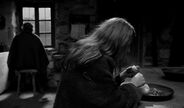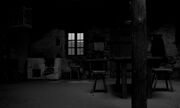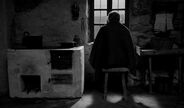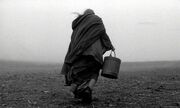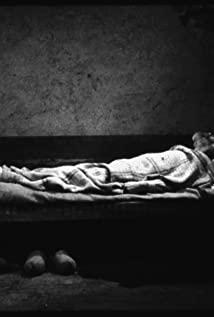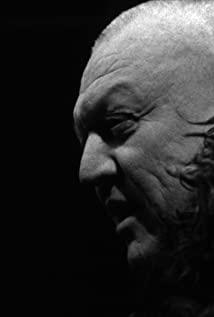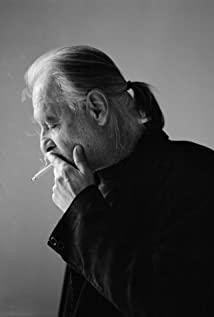Photography still continues Tarr's favorite black and white tone, which not only creates a pure space that is not disturbed, but also this kind of retro and original picture can find a very appropriate point of fit with the background of the times at that time. The beautiful soundtrack of sadness, grief and grief makes the atmosphere of the whole film seem unusually heavy and poignant, but there are only two father and daughter living in a limited scene day after day seemingly boring and repetitive, but through Tarr's calm and unique control and capture of the camera lens, like a long-term static pause of a fixed camera lens, may seem extremely boring and boring to some people, but after reading it, you will find that Tarr's idea is actually quite Subtle and genius.
It can be said that Tarr has created a sophisticated and complex philosophical structure in a seemingly simple layout. Through the ordinary daily life of the father and daughter and the subtle changes in nature, as well as the first-class use of the camera lens and poetic expression, to achieve the goal. Reflecting the existence value of nature, religion and the individual in a philosophical sense, just as the origin of this film is based on Nietzsche's mental disorder caused by a seemingly ordinary event in the future, in my opinion Nietzsche's identity and experience are more like It is the blueprint and shortcut chosen by Tarr to plan this masterpiece. Whether it is Nietzsche himself or The Horse of Turin, they all gain a certain ideological sublimation from the simple to the deep through the ordinary normality. In the plain and general intentions, I can really experience a profound insight that is the most essential, like returning to the basics.
The whole movie is divided into several small segments by time. Within a certain time and space, the daily and trivial things in life are repeated tirelessly, but in the whole seemingly boring process, Tarr has subtly integrated a little bit. Changes and the invasion of foreign factors, from the strong disgust and loss of control of horses, the uttering of wine buyers, a group of free hedonistic gypsies, the wells that have suddenly dried up to the bottom, the dying horses, and they can't be ignited. The kerosene lamp, in the end, can only helplessly eat raw potatoes. Through these ingenious designs and more and more drastic changes, you can feel a very subtle relationship between nature and creatures, human beings and animals, society and human beings. Some kind of invisible and close connection.
The strong cold wind is arrogantly searching and attacking outside, and the powerful energy bursting out of the fickle nature makes everything seem incomparably small and humble in front of it. To be able to sit still and wait for death, at that moment, how insignificant and vulnerable the fragile creatures are in the face of the majestic nature. From the sloppy and haggard appearance, we can see how horses used to run around all day and are tired. One is that the unfair division of status is most obvious in the way humans and animals get along. The other is the emotional expression of horses. In the final state of mind and body, it seems that there is a strong and pessimistic resonance that can only be lived under passive, restrained and helpless living conditions. This point seems to be understood to a certain extent through Nietzsche's experience.
In addition to the father and daughter, there are two people in the whole film. Through their words and actions, we can find two things in common. One is to express doubts about religious beliefs, and the other can be regarded as a kind of foreign culture and The invasion of ideological trends, the interconnection between individuals and society, when the strong and stereotype insists on refusing to integrate into or accept contemporary civilization or ideas, and when they want to be completely loyal to their own existence, the last lens with infinite bitterness and sadness can see opportunities. It is very small. When you fall into many crises due to subjective and tough self-awareness or because of external influences, you can't struggle and resist. When God steps into a cold grave, belief is just a meaningless empty talk. When Tal creates all the above. In desperate conditions, in the process of seemingly constantly disappearing and passing away, it returns to the original point step by step, reflecting the inevitability and essence of existence.
View more about The Turin Horse reviews



